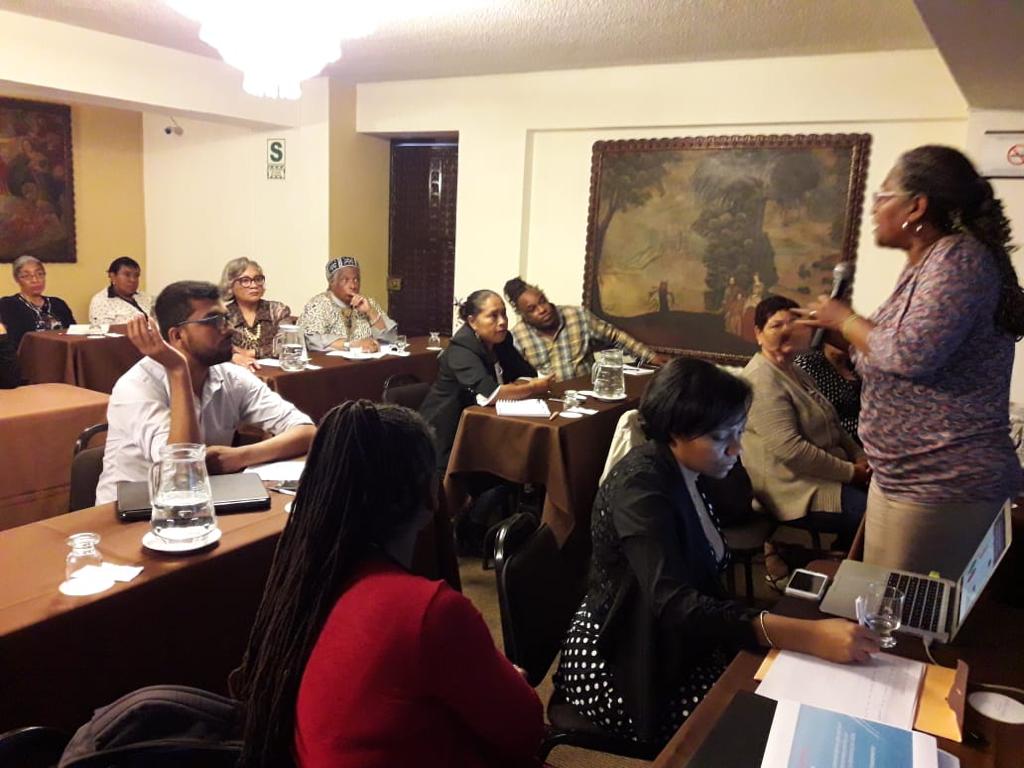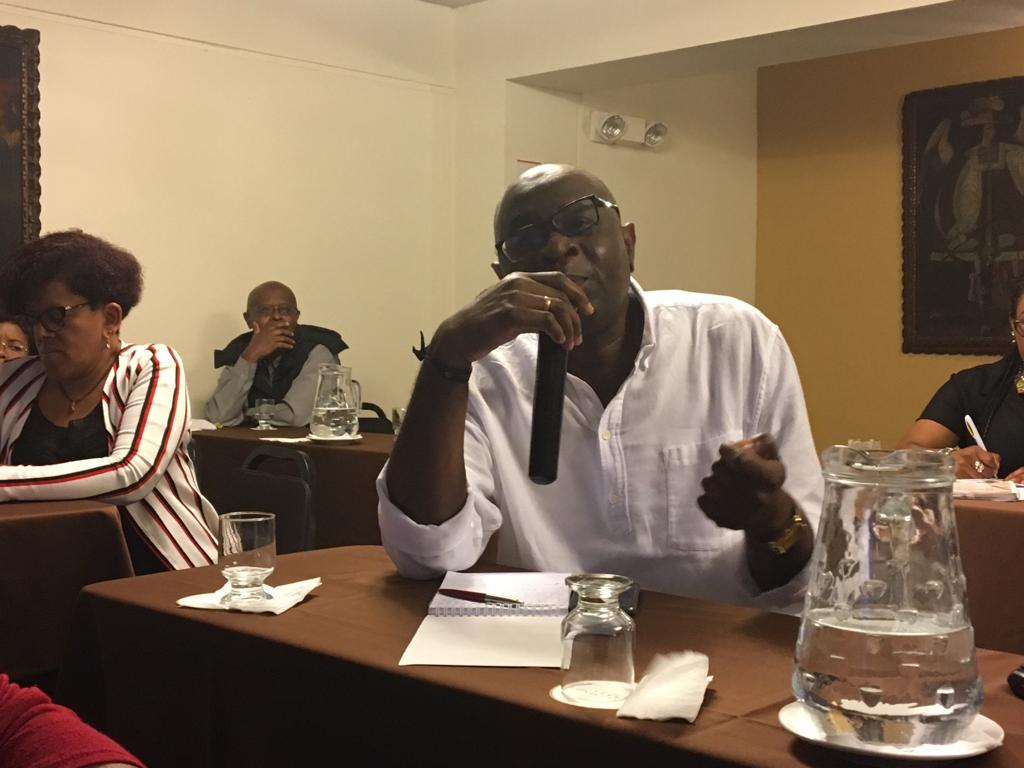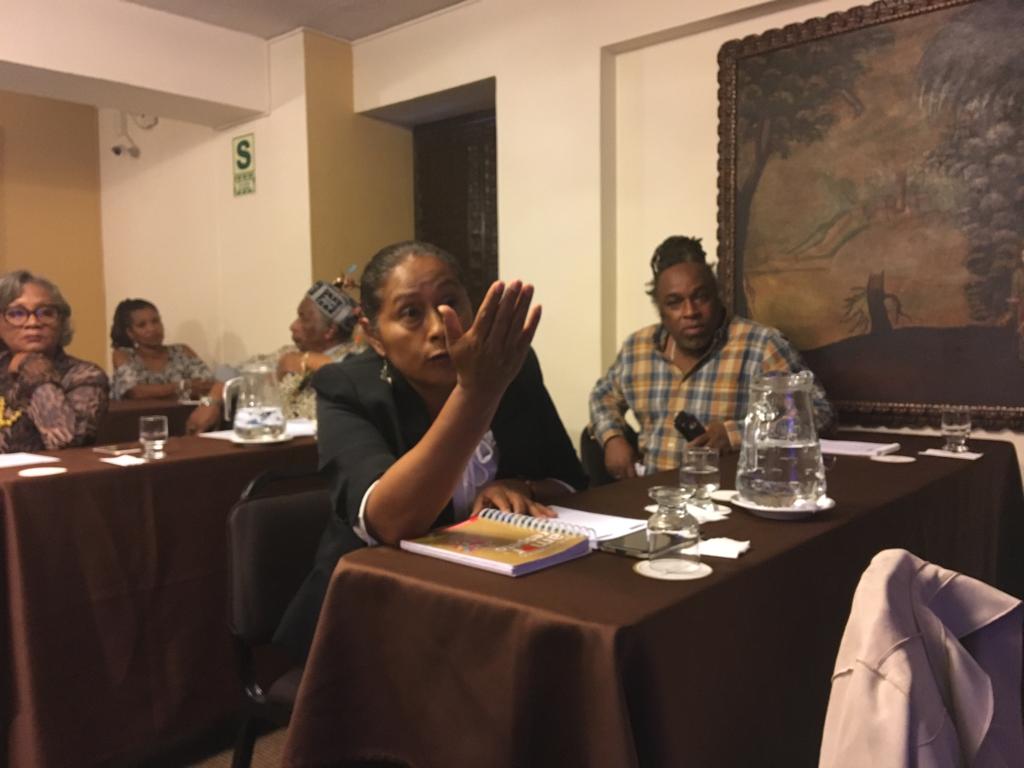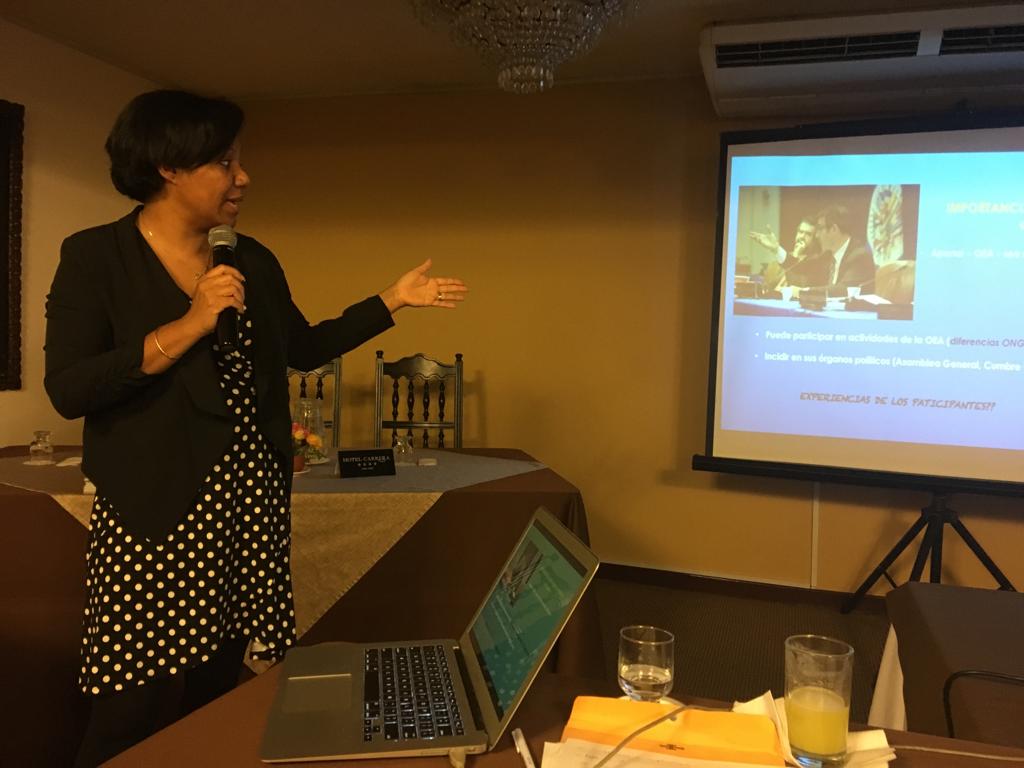PERSECUTION OF HUMAN RIGHTS DEFENDERS IN NICARAGUA: LEGAL STATUS OF CENIDH, HAGAMOS DEMOCRACIA, IEEPP, CISAS, AND FIVE OTHER NGOs INVALIDATED
Washington, DC, December 12, 2018 – During the last two weeks, the Nicaraguan government escalated the persecution and criminalization of human rights defenders in the country by utilizing the parliamentary majority of the FSLN, the party of the government, to invalidate the legal status of four human rights organizations with a long history of human rights defense and democratic institutions in the country, with the last two being Centro Nicaragüense de Derechos Humanos [Nicaraguan Center for Human Rights] (CENIDH) and Asociación Hagamos Democracia [Let’s Do Democracy Association].
This is “a decision to eliminate anyone who opposes, who criticizes the viciousness of the repression that is being driven” by the authorities, declared Vilma Núñez, President of CENIDH, after learning of the decision of the National Assembly (NA), although she assured that the “commitment to continue accompanying the Nicaraguan people in whatever form is not dissolved by an illegal and arbitrary resolution of organs that have no autonomy, that have no independence.”
On November 29, the NA invalidated the legal status of the Centro de Información y Servicios de Asesoría en Salud [Center for Health Information and Advisory Services] (CISAS) after immigration authorities stripped its Director, human rights defender and feminist Ana Quirós Víquez, of her Nicaraguan citizenship and deported her to Costa Rica. Later, December 11 brought the invalidation of the legal status of the Instituto de Estudios Estratégicos y Políticas Públicas [Institute of Strategic Studies and Public Policy] (IEEPP), a think-tank led by academic and activist Félix Maradiaga, who had to go into self-imposed exile in the United States due to the criminalization to which he was subjected.
The four organizations – which have had an even more decisive role during the last eight months of sociopolitical and human rights crises – are accused without any grounds of having committed illegal acts, violated the public order, and carried out activities that are not appropriate to the goals for which they were established. However, the authorities committed arbitrary acts such as [holding] secret, expedited trials and did not permit said organizations’ legal representatives to argue anything in their own defense.
[/vc_column_text][/vc_column][/vc_row]
#SOSNicaraguaGlobal RECHAZAMOS Y CONDENAMOS la decisión del Estado de Nicaragua de cancelar arbitrariamente personería jurídica de @hademos y el @cenidh. ¡EXIGIMOS RESPETO A LOS DH DE LXS NICARAGÜENSES! @cejil @PauloAbrao @EdisonLanza @mbachelet @OACNUDH @totonia68 pic.twitter.com/ayqNfEE2YH
— Race and Equality (@raceandequality) December 12, 2018
#SOSNicaragua - Son dos instituciones del Estado las que se han coludido para violar sus compromisos con la ley: el Ministerio de Gobernación y la Asamblea Nacional #VocesConNicaragua pic.twitter.com/NaRgfsYcfq
— Race and Equality (@raceandequality) December 12, 2018
“There’s CENIDH for a while”
CENIDH was founded in 1990 as a center for defending and promoting human rights in Nicaragua; two years later, it obtained its legal status. Today, during the morning of December 12, at the request of the Director of the Department of Registration and Control of Associations in the Ministry of Government, Gustavo Sirias, the National Assembly received as an urgent proceeding the proposal to invalidate the legal status of this organization.
According to Sirias’ statement of motives, CENIDH was leaderless because [the term of] its Board of Directors had expired; it had not reported its financial statements for 2017; and additionally, had “utilized the organizational schema to raise, receive, channel, and facilitate funds to alter the public order and carry out actions to destabilize the country.”
Although the foregoing arguments were endorsed by FSLN Members of Parliament, the opposing Members of Parliament in the parliamentary plenary denied those accusations and insisted that this was one more arbitrary act committed by the Nicaraguan government against human rights defenders.
María Fernanda Flores, a Member of Parliament from the Liberal Constitutionalist Party (PLC), maintained that the Nicaraguan Assembly was “leaving defenseless an entire population who through CENIDH denounces on a daily basis the abuses and violations of their rights,” while Member of Parliament Brooklyn Rivera of the indigenous Yatama Party said that the invalidation of CENIDH’s legal status in fact served to deepen the human rights crisis that Nicaragua had been experiencing since April. “We indigenous peoples have been witness to the difficult and thoroughly dedicated work performed by Dr. Núñez and her team. She has truly defended all Nicaraguans – Sandinistas, liberals, conservatives, campesinos, women, indigenous people, everyone,” Rivera declared.
Finally, the invalidation of CENIDH’s legal status was approved, with 70 votes in favor and 17 opposed. Núñez, as president of the organization, described the initiative as “malign” and expressed her anger to the media outlets that accompanied her to the institution’s headquarters after the decree was approved.
Vilma Núñez, president of CENIDH, submitted a report on Monday, December 10 on the six months of civic resistance to governmental repression in Nicaragua.
“There’s CENIDH for a while, there’s commitment on the part of each and every one of the human rights defenders, of its Board of Directors, of its founding members, but above all of the team that on a daily basis confronts violence, discrimination, [and] abuses committed by the government,” declared Núñez, backed by the CENIDH defenders.
With regard to the reasons presented today by the Ministry of Government (MIGOB) to the National Assembly, Núñez revealed that on March 23 the organization had submitted its financial statement to MIGOB for fiscal 2017, although they were not given proof of legality; and with regard to the Board of Directors, she said that it expired on April 25 and that the assembly to elect new authorities had to be suspended due to the critical situation transpiring in the country during those days, when the crisis had just begun.
“The Board of Directors was elected and on November 30, 2018 we sent them the certified minutes and [other] requirements. They did not want to sign, they did not want to acknowledge them as having been submitted, and they gave us a list of 15 requirements with which they said we had to comply in order for them to accept it,” explained Núñez, who indicated that CENIDH had not violated any of its By-laws and that all of its actions have transpired within the framework of the law.
“We are prepared to confront and reject any arbitrary action, any invasion of our physical institution they wish to undertake; by doing so they will not limit our commitment,” emphasized the President of CENIDH, who recently turned 80 years old.
Persecution of defenders
This week, in commemoration of the 70th anniversary of the Universal Declaration of Human Rights, CENIDH presented a report entitled Grave Human Rights Violations Perpetrated by the State of Nicaragua describing the rights violated during six months of civic resistance to governmental repression.
The report declares that the State of Nicaragua violated the human right to defend rights, because a pattern exists of attacks aimed at human rights defenders, journalists, community leaders, lawyers, students, and activists who have been victims of actions such as intimidation, threats, assassinations, detentions, illegal raids, smear campaigns, defamation, [and] criminalization, among others, with the goal of “silencing their voices and preventing them from exercising their right to inform, protest, express themselves, and defend human rights.”
A number of days ago, CENIDH asked for permission to march in commemoration of Human Rights Day, complying with the unconstitutional police order regarding protests. Permission was not only denied, but the police alleged as one of its arguments that the organization was being investigated regarding the April incidents.
DECLARATION
The International Institute of Race, Equality, and Human Rights (Race & Equality) strongly condemns and rejects the arbitrary decision of the State of Nicaragua issued today in the plenary of the National Assembly to invalidate the legal status of organizations that promote and defend human rights and democracy.
The legislative decree to invalidate the legal status of ILLS, Fundación del Río, IPADE, Fundación Popol Na, [and] CINCO, as well as the one that preceded it targeting CENIDH, Hagamos Democracia, IEEPP, and CISAS, demonstrate the state of repression and grave violation of freedom of expression, participation, association, and peaceful assembly of which the Nicaraguan people, human rights defenders, and independent media are victims today as dissidents of the dictatorial plans being imposed by the government of Daniel Ortega and Rosario Murillo on the Nicaraguan people.
We reject the statements made by the FSLN Members of Parliament in the National Assembly, who irresponsibly accuse organizations of human rights defenders that have tirelessly demanded justice, democracy and truth for the regime’s victims – as the Nicaraguan people and international community know – as being “terrorists” and “coup participants.”
We observe with concern the extremely grave consequences of the absence of rule of law in Nicaragua due to the actions of the current government, which far from guaranteeing, safeguarding, and protecting the people’s human rights, have obstinately persisted in restricting civil society’s legitimate possibility to freely participate in social construction, which opens new, repugnant, and deliberate gaps of inequality, exclusion, and discrimination.
Likewise, we declare that this determination of the Ortega-Murillo regime will never ensure the ‘invisibilization’ of the terror, vulnerability, and violence being visited upon the country for eight months now, aimed at perpetuating the impunity in which grave violations of Nicaraguans’ fundamental rights continue to be committed in the form of assassinations, persecution, and intimidation to which they have been submitted due to their denunciations.
We at Race & Equality are convinced that without a new political and social agreement there will be no peaceful resolution to the crisis; therefore, we demand that the State of Nicaragua respect and guarantee Nicaraguans’ rights to freedom of expression, association, and assembly. Likewise, we urge [governmental] respect for the guarantees of due process and the right to a defense that today are brazenly violated by the National Assembly through its sanctioning of said organizations based on unilateral reports that arbitrarily accuse those institutions of carrying out activities that differ from their objectives and missions.
All of these incidents encourage us to raise an international alarm regarding the situation in Nicaragua. We invite the international community, human rights protection organs, and the various manifestations of civil society to redouble their efforts so as to ensure the prompt return of democracy, justice, and peace to Nicaragua.







